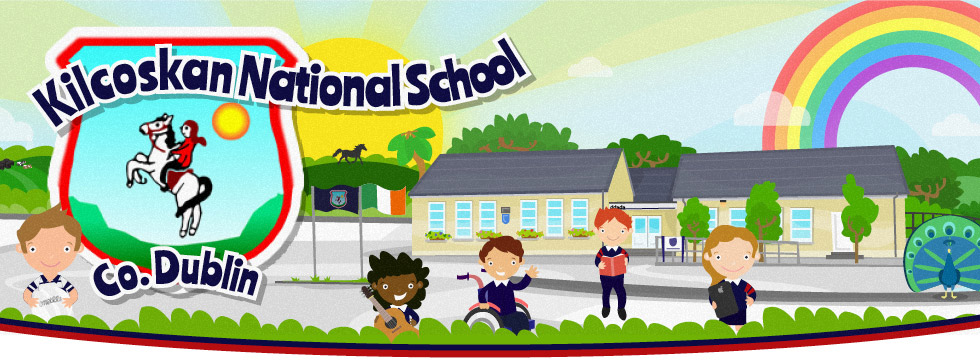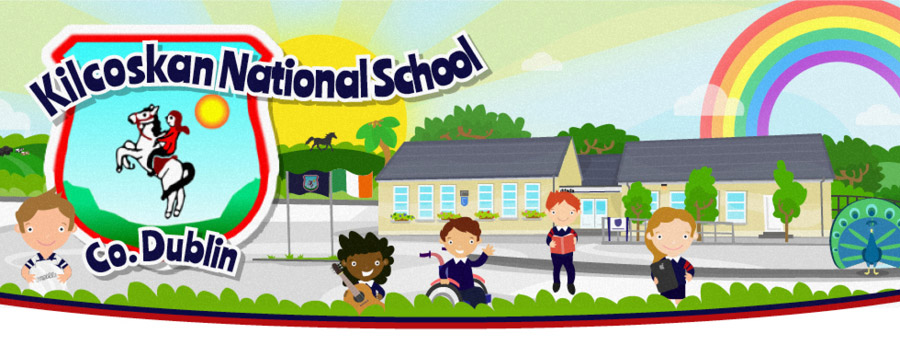Hygiene Matters Newsletter
HYGIENE MATTERS (March 2020)
With the recent outbreak of the Covid-19 virus and worldwide news coverage please refer to the HSE website to keep updated on the latest information in relation to the virus.
Here are some top tips from us on how to try keep germs at bay and prevent spreading.
HAND WASHING/SANITISING:
Unwashed or poorly washed hands are the main cause of sickness spreading between people, especially children who are in close contact in a classroom. Regular hand washing and/or use of hand sanitiser can really help to keep germs at bay. The school will teach children about this, but it’s important to reinforce it at home. Then it becomes second nature to your child, and it’s a habit that will stand to them for life.
How germs spread:
Germs from unwashed or poorly washed hands can be transferred onto objects like handrails, door handles, table tops and toys/crayons etc. These germs can then get onto other people’s hands and enter the body when the eyes, nose or mouth are touched.
Germs can also be spread in the air, when people don’t ‘catch’ their sneezes or coughs. If not caught, they become airborne and can be breathed in by others. So please teach your children to ‘catch it, bin it, kill it’.
We know this can be tricky with younger kids. A good back-up is to teach your kids to ‘catch’ their coughs and sneezes directly in their elbows if they don’t have a tissue to hand. If their elbow catches the droplets, they don’t become airborne. Catching coughs and sneezes in your hand is pointless, as your hands will then spread those germs around unless they are immediately washed.
When to wash hands:
Before eating.
After coughing, sneezing or blowing your nose.
After touching an animal.
After using the toilet.
After touching a bin.
How to wash hands:
The quality of handwashing matters – a splash and dash doesn’t cut it!
Wet your hands and apply soap.
Make bubbles everywhere –front and back of hands and in between fingers. Don’t forget your thumbs!
Scrub for at least 20 seconds (try singing Happy Birthday twice!)
Dry with a disposable paper towel or using a clean, personal hand towel. Towels should not be shared.
When soap and water aren’t available, hand gels are an excellent alternative. To be effective, you need to use enough gel to cover all surfaces of both hands, including between the fingers. Then simply rub hands together for 30 seconds and allow the product to dry. Alcohol based sanitisers are advised.
Refillable gel bottles are useful as you can refill and attach to school bags / put in lunch boxes.
Like everything, it’s up to us to lead by example! If we have good hygiene habits ourselves, our children are more likely to follow suit. As well as keeping your own child happy and healthy, good hand hygiene is important to protect other medically vulnerable children in the school, for whom a ‘regular’ cold or cough can have serious, life-threatening consequences.
SPECIFICALLY IN LIGHT OF COVID-19, YOU SHOULD NOT SEND YOUR CHILD TO SCHOOL:
- If your child/ren has travelled to one of the affected areas listed on the HSE website (www.hse.ie)
- If your child has been in contact with a person that has travelled to one of these affected areas
- If your child has been in contact with a person that is potentially infected with the virus
GENERALLY parents are asked not to send their child/ren to school if the child/ren has symptom of an infectious illness including:
- FEVER: The normal body temperature is 36.5 to 37.2 C. If the child develops a temperature, she/he should remain at home until 24 hours after the fever has passed.
- HEAVY COLD SYMPTOMS OR FLU LIKE SYMPTOMS: e.g. large amount of yellow-green nasal discharge, sleepiness, ear pain and/or fever. The child should be kept at home until these have subsided and the he/ she is able to participate in the normal school curriculum.
- MILD COLD SYMPTOMS: If a child’s mild cold symptoms would prevent him/ her from participating in normal school curriculum, e.g. significant weariness at onset, streaming watery discharge from nose, persistent cough, he/ she should be kept at home.
- The child does not feel well enough to participate in the normal programme of curriculum activities.
In addition:
- If antibiotics are prescribed for a contagious illness or infection, the child should not attend school until 24 hours after treatment has begun and must be showing signs of improvement.
- Vomiting / diarrhoea – don’t return to school until 48 hours after last episode
The role of the school
If a child feels unwell or appears unwell, on arrival at school or during the school day, the school will contact the parent/guardian. This is for the wellbeing of the child who is sick and also for the wellbeing of all members of the school community.
On an ongoing basis, we will aim to promote good hygiene practices that will help prevent transmission of infection. These practices will be taught as part of the SPHE curriculum and will be consolidated throughout the school day. They will include:
- Teaching and implementing effective handwashing throughout the school, with staff leading by example
- Teaching and implementing respiratory hygiene and cough etiquette, e.g. to cover coughs and sneezes
- Facilitating the Schools Immunisation Programme
- Provision of gloves, aprons, suitable sanitising cleaning products and cleaning equipment for staff who are in contact with bodily fluids when caring for a child
There are a number of pupils in our school that suffer from respiratory related illnesses and we would ask all parents/guardians to please be aware of the threat the current corona virus poses to these children as they are in a very high risk category.
Please refer to www.hse.ie for ongoing and further information.
Thanking you all for your co-operation and we hope everyone keeps healthy and well.
Kilcoskan National School, Kilcoskan, The Ward Co.Dublin Dublin Phone: 00353 1835 1508
 Menu
Menu



